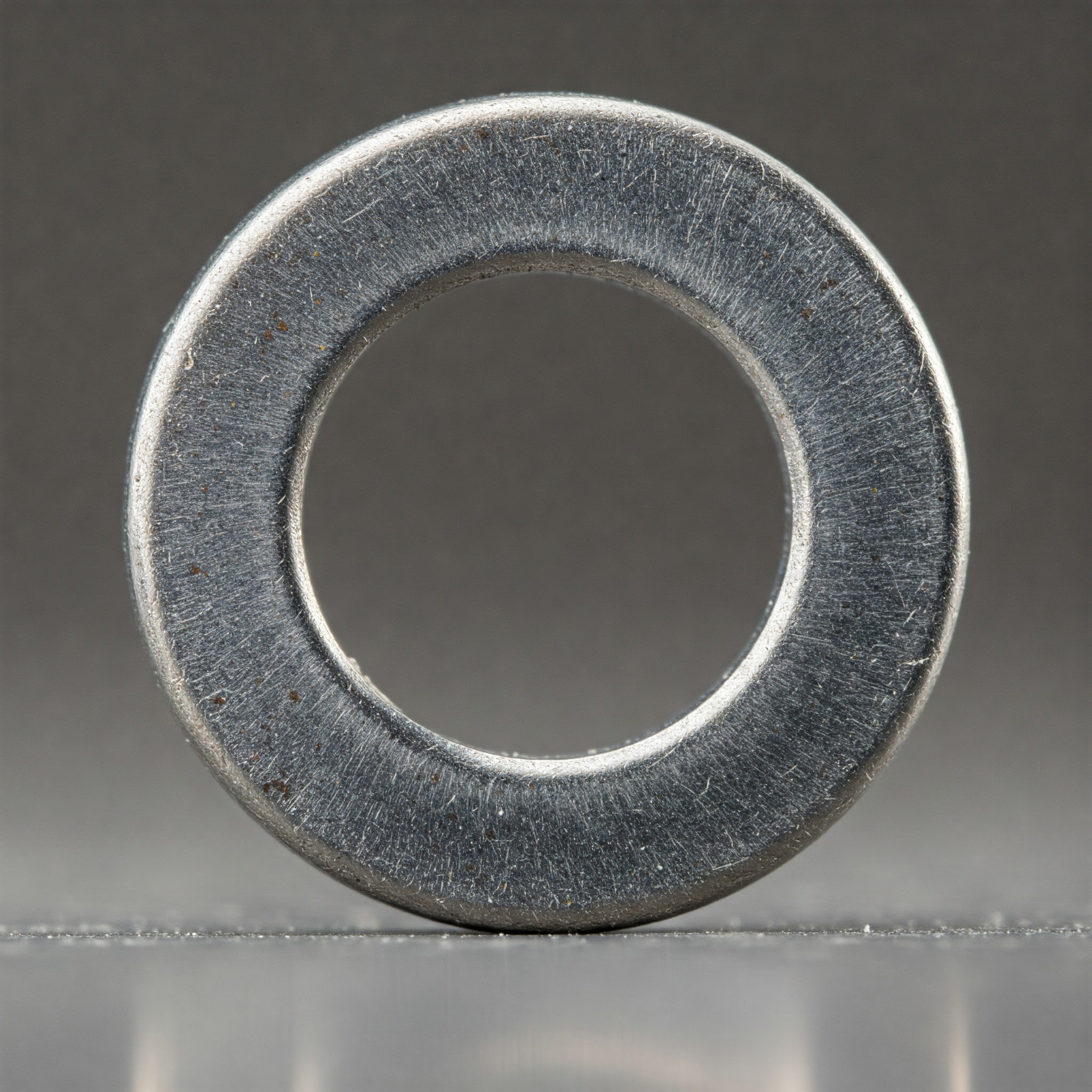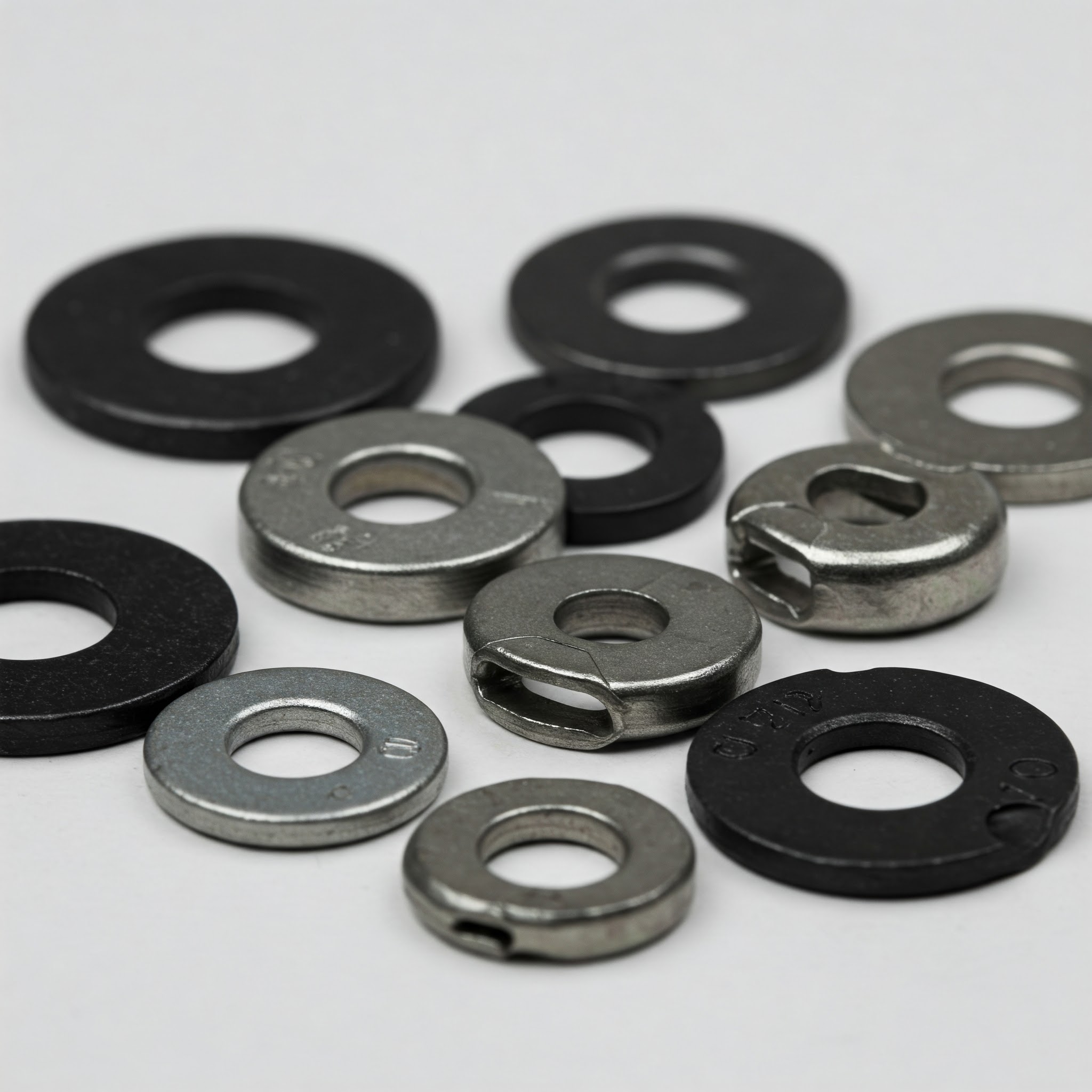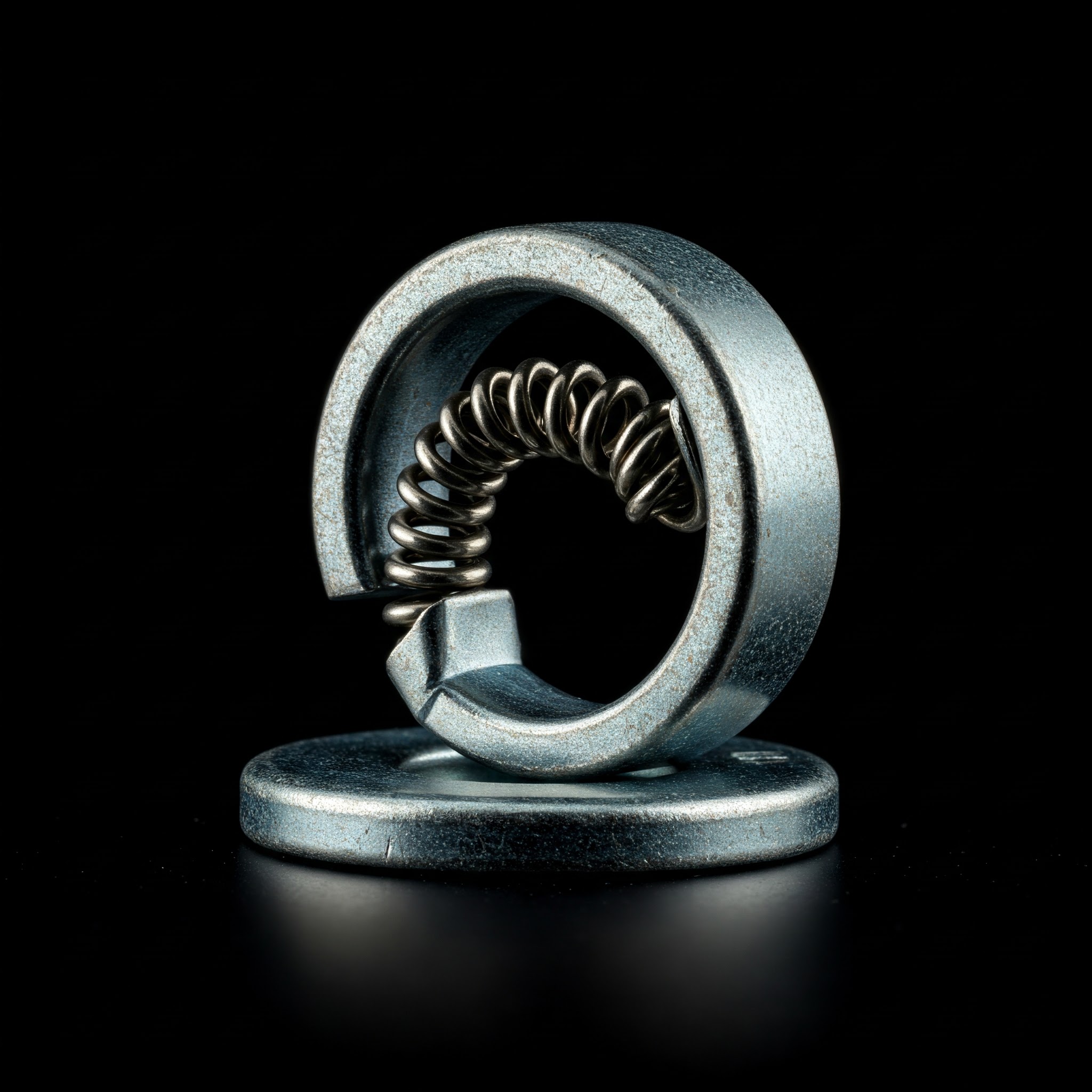Why Spring Lock Washers Are a Must for Heavy-Duty Applications

Hey, did you know that something as simple as a spring lock washer can make a huge difference in keeping your machinery secure? I’m talking about those small, yet mighty components that prevent bolts and nuts from loosening—especially in environments with high vibration and stress. If you're in industries like automotive, construction, or manufacturing, these washers are essential for ensuring your assemblies stay intact. Whether you're dealing with corrosion, constant motion, or temperature changes, a spring lock washer has got your back. Let’s explore why they’re such a game-changer for heavy-duty applications!
Table of Contents
- What Are Spring Lock Washers?
- Why You Need Spring Lock Washers in Heavy-Duty Applications
- Types of Spring Lock Washers and Their Uses
- How to Choose the Right Spring Lock Washer for Heavy Loads
- Spring Lock Washer vs Flat Washer – Which is Better?
- Best Corrosion-Resistant Spring Lock Washers for Marine Applications
- Benefits of Using High-Strength Spring Lock Washers
- Common Mistakes to Avoid When Using Spring Lock Washers
- Final Thoughts: Upgrade Your Fastening Game
What Are Spring Lock Washers?
A spring lock washer is a small yet vital component used in fastening applications to maintain the integrity and security of a connection. While they might appear simple, these washers are ingeniously designed to prevent nuts and bolts from loosening under pressure or vibration, ensuring a reliable and secure fastening. This makes them essential in various applications where components need to stay tightly fastened over time, especially in environments prone to movement or vibration.
How spring lock washer Work: Spring lock washers function by using the principles of spring tension and friction to secure a nut or bolt. The washer's shape is typically a split ring, which, when compressed between the nut/bolt and the material surface, exerts pressure and creates tension. This pressure keeps the fastener tightly in place, preventing it from loosening even under fluctuating forces or continuous vibration.
The spring action of the washer resists the loosening of fasteners due to vibrations or mechanical movement. This is particularly important in heavy-duty applications, where loose fasteners can lead to equipment failure, structural issues, or even safety hazards.

Why You Need Spring Lock Washers in Heavy-Duty Applications
Let’s be honest—relying on bolts and nuts alone isn’t enough when your machinery is operating under intense stress, vibration, or motion. This is where heavy-duty spring lock washer become essential.
They act as a built-in safety mechanism, offering:
Consistent tension across the joint: This means the washer will keep the bolt tight, ensuring that the fastener stays in place even when subjected to extreme pressure or movement.
Extra grip: holds bolts in place even with constant shaking: This feature is crucial in environments where machinery or components undergo continuous vibration or shifting.
Resistance to loosening from temperature changes, pressure cycles, or impact: These washers are engineered to maintain their gripping power even in environments with fluctuating temperatures or in situations that involve repeated pressure cycles.
If you’re working with industrial-grade machinery, using the right spring lock washer can help you avoid frequent downtime and costly repairs. They prevent fasteners from loosening, keeping everything securely in place, no matter how harsh the conditions may be.
Types of Spring Lock Washers and Their Uses
Not every washer is built for every job. Choosing the correct type is key to performance and longevity. Let’s go through the popular types:
SS Spring Lock Washer (Stainless Steel) – These are the go-to option for corrosion resistance and long-term durability. If you're working in damp, humid, or coastal environments, stainless steel spring lock washer will hold up far better than regular steel. They're also ideal for food-grade or medical equipment due to their hygienic properties.
Zinc-Plated Spring Lock Washer – Budget-friendly and corrosion-resistant to a certain extent, zinc-coated washers work well for general use in dry environments. They're commonly used in light to medium-duty applications, where full stainless isn’t necessary but some rust protection is still desired.
Hardened Spring Washer – These are made from heat-treated steel for maximum tensile strength and load-bearing capacity. You’ll find these washers in construction projects, turbines, automotive assemblies, and anywhere extreme load forces are expected.
Custom Spring Lock Washer – Need something unique? Custom washers allow you to specify dimensions, tolerances, materials, and finishes that meet your exact needs. Whether you want a washer that handles higher torque or fits a specific bolt design, customization ensures perfect compatibility.
How to Choose the Right Spring Lock Washer for Heavy Loads
Making the right choice can feel overwhelming—but don’t worry. Here's how to make a confident selection:
Material Selection – Think about the working environment. For corrosive settings, go with an ss spring lock washer Work: Spring lock washers function by using the principles of spring tension and friction to secure a nut or bolt. The washer's shape is typically a split ring, which, when compressed between the nut/bolt and the material surface, exerts pressure and creates tension. This pressure keeps the fastener tightly in place, preventing it from loosening even under fluctuating forces or continuous vibration.
. If load-bearing strength is more critical, choose a hardened or high-tensile washer
Application Load – Assess how much load your joint will face. For high-stress or high-vibration applications, a heavy-duty spring lock washer will maintain clamping force and reduce joint failure.
Surface Compatibility – Some washers dig into softer materials like aluminum. If that’s the case, you might want a flat washer underneath to avoid damage while still using a spring washer on top.
Compliance and Testing – Look for certifications or product testing—especially in industrial or critical infrastructure use. Don't compromise on quality just to save a few bucks.

Spring Lock Washer vs Flat Washer – Which is Better?
This is a common question—should you use a
How spring lock washer Work: Spring lock washers function by using the principles of spring tension and friction to secure a nut or bolt. The washer's shape is typically a split ring, which, when compressed between the nut/bolt and the material surface, exerts pressure and creates tension. This pressure keeps the fastener tightly in place, preventing it from loosening even under fluctuating forces or continuous vibration.
or a flat washer? Here’s a side-by-side comparison:
Material Type: Choose stainless steel spring lock washers for corrosion resistance or hardened steel for high-strength applications.
Load Capacity: Heavy machinery requires washers with a high clamping force.
Bolt & Nut Compatibility: Ensure the washer size matches the bolt diameter for proper fitting.
Environmental Conditions: If working in extreme temperatures or chemical exposure, opt for specialty coatings.
If your concern is about keeping the bolt from loosening, always go with a spring lock washer. Flat washers are more for spreading load or protecting surfaces—they don’t add clamping force or resist motion.
Best Corrosion-Resistant Spring Lock Washers for Marine Applications
Marine environments are extremely harsh. Between saltwater, humidity, and temperature swings, hardware can degrade fast. That’s why using the best
How stainless steel spring lock washer Work: Spring lock washers function by using the principles of spring tension and friction to secure a nut or bolt. The washer's shape is typically a split ring, which, when compressed between the nut/bolt and the material surface, exerts pressure and creates tension. This pressure keeps the fastener tightly in place, preventing it from loosening even under fluctuating forces or continuous vibration.
for marine applications is essential.
Here are the top choices for corrosion-resistant spring lock washers in these challenging environments:
316 SS spring lock washers: These washers are made from 316 stainless steel, which offers superior corrosion resistance against saltwater and other harsh elements. Known for their ability to withstand rust and pitting, 316 SS is one of the best materials for marine-grade applications.
Passivated stainless steel: The passivation process further enhances the surface durability of stainless steel. By removing free iron from the surface, passivated stainless steel washers provide extra protection against corrosion, making them ideal for marine environments where metal degradation is a serious concern.
Custom-coated options: For even more protection in salt-heavy zones, custom-coated washers can be used. These coatings add an extra layer of defense, offering chemical resistance and further improving the washer’s performance in extremely corrosive conditions, like those found in coastal and offshore marine environments.
These washers won’t just survive—they’ll perform under pressure, ensuring your assemblies stay intact during long-term marine exposure. By choosing the right corrosion-resistant spring lock washers, you ensure reliability and safety in your marine applications, minimizing the risk of fastener failure and expensive repairs.

Benefits of Using High-Strength Spring Lock Washers
High-strength spring lock washer Work: Spring lock washers function by using the principles of spring tension and friction to secure a nut or bolt. The washer's shape is typically a split ring, which, when compressed between the nut/bolt and the material surface, exerts pressure and creates tension. This pressure keeps the fastener tightly in place, preventing it from loosening even under fluctuating forces or continuous vibration.
are a must-have for engineers and manufacturers dealing with applications where fasteners are subject to intense conditions. Whether it’s high pressure, vibration, or thermal changes, these washers offer incredible benefits that make them an indispensable part of securing critical systems. Here's why they’re essential:
Key Benefits:
Maintains consistent bolt tension: One of the key advantages of high-strength spring lock washers is their ability to maintain consistent tension across the joint, even under thermal expansion, vibration, or fluctuating pressures. This ensures that bolts stay tight and your assembly stays intact, preventing loosening over time.
Protects your assemblies: These washers create additional friction, making it less likely that bolts will come loose due to vibrations or shocks. This protection greatly reduces the chances of accidents or equipment failures due to improperly fastened components.
Extends service life: High-strength washers contribute to longer-lasting assemblies by reducing the need for frequent re-tightening or maintenance checks. This means fewer interruptions to operations, allowing systems to function efficiently for a longer period without needing constant attention.
Boosts reliability in dynamic systems: In applications like engines, compressors, or vibrating motors, spring lock washer Work: Spring lock washers function by using the principles of spring tension and friction to secure a nut or bolt. The washer's shape is typically a split ring, which, when compressed between the nut/bolt and the material surface, exerts pressure and creates tension. This pressure keeps the fastener tightly in place, preventing it from loosening even under fluctuating forces or continuous vibration. They improve the reliability of dynamic systems by ensuring that bolts stay securely in place despite continuous movement and pressure, which is crucial in high-stress environments.
Reduces failure risk: In load-bearing systems or rotating equipment, failure risks are significantly reduced with high-strength spring lock washers. By keeping fasteners secure, these washers prevent potential disasters caused by loose or failing bolts, which could lead to serious safety hazards, equipment breakdowns, or costly downtime.
Common Mistakes to Avoid When Using Spring Lock Washers
Even the most durable washers can fail if not used correctly. To maximize performance and avoid rework or failures, watch out for these common mistakes:
Over-tightening the bolt: This can flatten the washer completely, reducing its ability to maintain tension. Always follow torque specs based on washer type and material.
Using incompatible materials: Pairing a spring washer with softer materials without proper load distribution (like a flat washer underneath) can cause damage to the surface.
Skipping washers altogether: Many assume a strong bolt is enough. But without a spring lock washer , vibration or thermal cycling can cause gradual loosening—leading to mechanical failure.
Reusing old washers: Once compressed or corroded, washers lose their effectiveness. Always replace with new ones during servicing to maintain performance and safety.
Avoiding these small errors can make a big impact in long-term durability and safety of your assemblies.
Final Thoughts: Upgrade Your Fastening Game
In the world of industrial fastening, the smallest parts often make the biggest difference. A spring lock washer might seem minor, but it can dramatically improve your system’s strength, reliability, and safety.
Whether you're sourcing for heavy-duty machinery, looking for the best stainless steel spring lock washer for industrial use , or comparing spring lock washer vs flat washer, always prioritize quality over convenience
Need corrosion resistance? Go withSS spring lock washers
Dealing with constant vibration? Choosehardened spring washers.
Looking for tailored solutions? Reach out tocustom spring lock washer suppliersin India.
Your fasteners are only as good as the washers behind them. So choose wisely—and keep your systems locked in tight
About Sachin Shim
Our range of shim washers includes machined washers , industrial washers , ogee washers , tab washers , conical washers , sealing washers , and more. Designed for various applications, they ensure precise alignment, secure fastening, and durability in industries like aerospace, automotive, construction, and manufacturing. Whether you need industrial washers for heavy machinery, sealing washers for fluid systems, or ogee, tab, and conical washers for specialized uses, our selection guarantees optimal performance.
Author
Meet Sachin, our expert author in industrial materials with a deep understanding of stainless steel shims, bolts, and shim washers. With years of experience, Sachin brings valuable insights and expertise to this guide, making her a trusted source for all things related to washers. Join us as we delve into the art of crafting washers with Sachin leading the way.
List Other similar blogs







